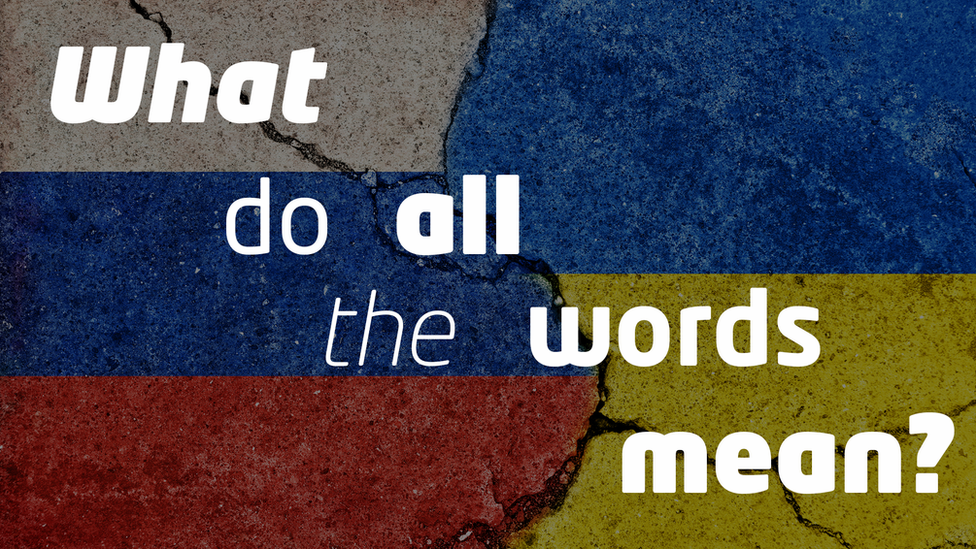War in Ukraine: Why did Russia invade and what's happening now?
- Published
- comments
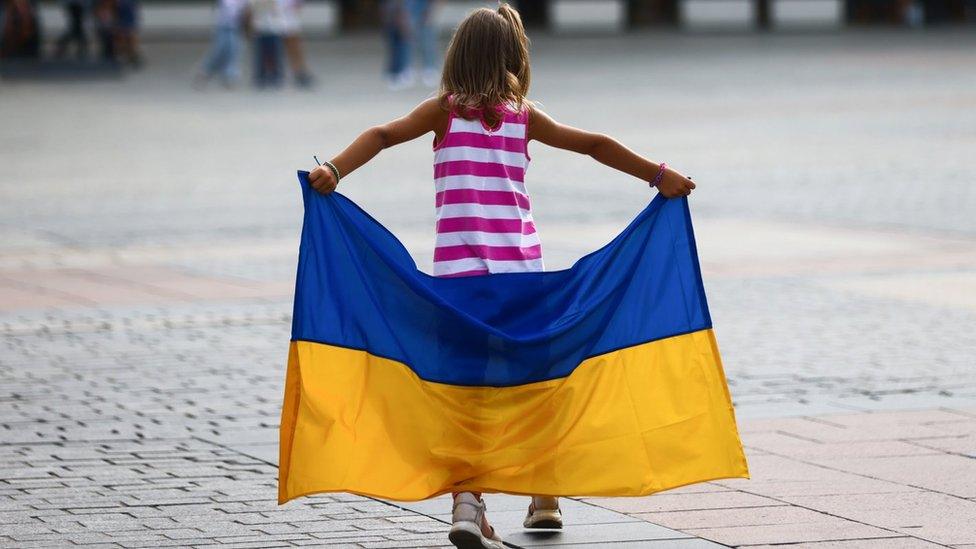
Millions of Ukrainian families have had to flee their homes since the Russian invasion
On 24 February 2022, Russian president Vladimir Putin ordered his army to forcefully cross the border and invade neighbouring Ukraine.
One year later, the war is still going on, and millions of children have been affected, with homes, public facilities and school buildings destroyed.
Newsround has travelled to Ukraine to meet some of the young people affected by the war. We visited schools where air raid sirens and sheltering in underground classrooms are now a part of children's everyday lives.
Watch the special documentary Ukraine: The Children's Story on iPlayer here.
How are children being affected by the war?
For millions of children, staying in their home towns was not possible due to the Russian invasion.
But for those who have managed to remain in the country, school lessons are mostly taking place online.
However, power lines are often damaged during air strikes and electricity blackouts are common.
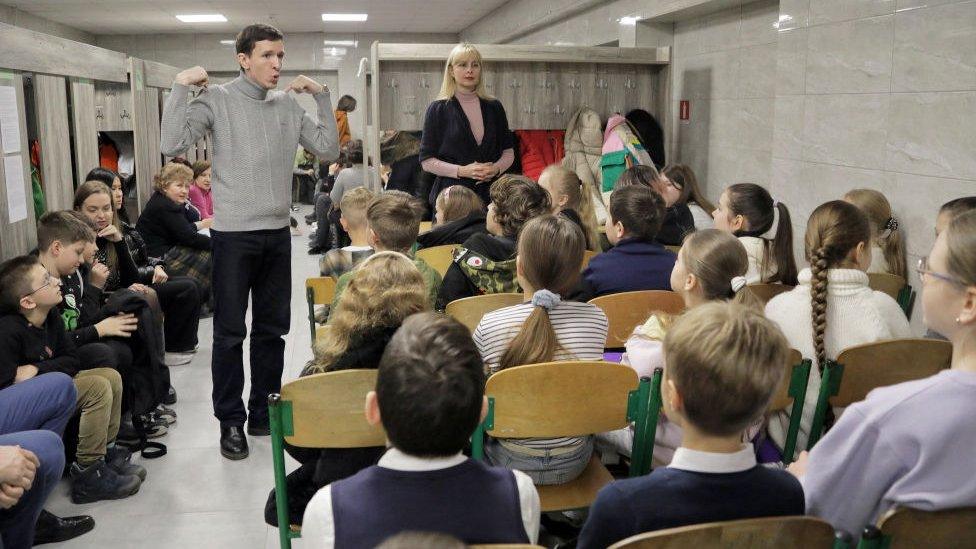
In some areas, school lessons are continuing in underground bunkers
In other areas, some children are managing to return to classrooms - often in makeshift buildings and in underground bunkers after their schools were destroyed.
The Ukraine government is working with other nations, including the UK, to try to help young people continue their education as much as possible.
But in the east of Ukraine where the country borders Russia, military troops are still fighting over territory and many places are still too dangerous for school of any kind.
It is thought education has been disrupted for more than five million children.
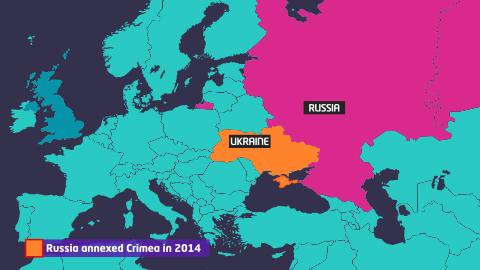
Who is winning the war?
It is very hard to measure the total impact the war has had, but there have been many casualties and parts of the country will need totally rebuilding.
When they first invaded, Russia's bigger and more powerful army was expected to have a much greater impact, but so far, the Ukrainian forces have managed to push them back in lots of areas.
Despite towns and cities suffering heavy shelling, Ukraine has been successful in slowing Russia's troops down considerably and have even taken back control over the previously captured city of Kherson.
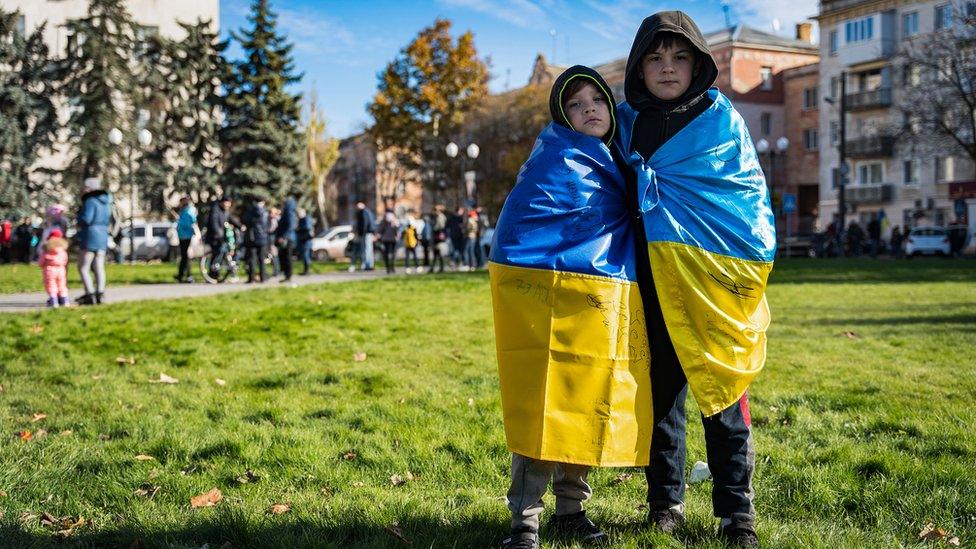
Two boys draped in Ukrainian flags celebrated last November in Freedom Square following Russia's withdrawal from the city of Kherson.
Earlier this week, Ukrainian President Volodymyr Zelensky said Russian attacks are increasing again in some parts of the country but they have not yet had any significant impact.
Mr Zelensky has requested more help from European countries and said they still need more weapons to help them fight the war.
In recent days, US President Joe Biden made a significant visit to the capital Kyiv, showing his full support for Ukraine and President Zelensky.
Mr Biden said that the US would be giving a new military aid package to Ukraine, worth $500m (around £415 million).
It is estimated the UK has spent £2.3bn on military assistance, making the country the second biggest military donor behind the US.
On Tuesday 21 February, the leaders of Russia and the United States of America both gave speeches on the war in Ukraine.
President Putin of Russia used his speech to the Russian parliament to blame countries in the West, which includes Europe and America, for the war.
President Biden, who spoke from Poland later in the day, denied this and said "Ukraine will never be a victory for Russia, never".
What has been the impact of the Ukraine war on the rest of the world?
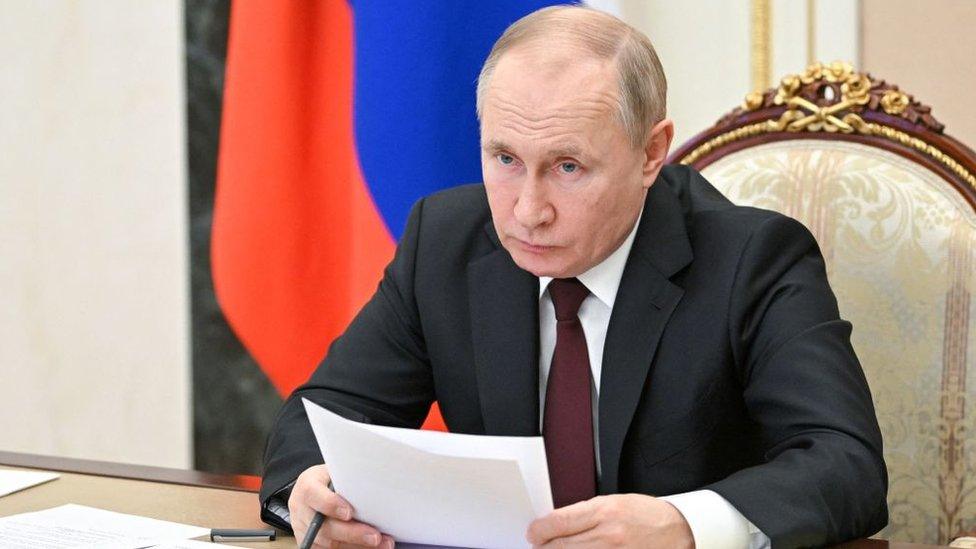
Russian president Vladimir Putin ordered his forces to attack Ukraine on a scale not seen in Europe since World War II.
Ukraine's armed forces have been fighting against the Russian military for a year now, and countries around the the world have been supporting Ukraine by supplying weapons and armed vehicles, such as tanks, to defend themselves.
Countries around Europe along with the United States, have also put significant limits on Russian trade and supplies, (called sanctions) with the aim of forcing Putin to stop his actions.
But more than eight million Ukrainians have had to leave their homes to try to escape danger, with over four million of them crossing into nearby Poland.
Since the invasion, the price of everyday items across the world has increased. This is because many countries are no longer using gas supplied by Russia, so there is greater demand and a higher cost for gas supplied from other places.
Why did Russia invade Ukraine last year?
The history of tensions between Russia and Ukraine.
The two countries have a long, complicated history. Ukraine became independent in 1991, before then it was dominated by Russia.
Before the war, Russia made demands including a promise that Ukraine would not join a group of countries called Nato.
The North Atlantic Treaty Organisation (Nato) is a military alliance of countries which includes the US and the UK.
Nato members promise to defend each other if they are attacked.
Historically, Russia and countries that are a part of Nato have not always got on. Many people in Ukraine want the country to join Nato to avoid being dominated by Russia.
You can read more about the history between Russia and Ukraine here.
What help is being provided to refugees?
'We're doing whatever we can'
When the war started, many countries offered to help people fleeing Ukraine.
They have been offered the opportunity to live in other countries like Germany, France, Poland and the UK, with a chance of safety, food, healthcare and education for young people.
Charities have raised money and collected bedding, clothes and blankets for refugees when they arrive in new countries.
It is not clear exactly how many refugees have travelled to the UK, but recent government figures show around 160,000 Ukrainian refugees have officially settled here.
Within weeks of the war breaking out, a scheme was launched called Homes for Ukraine, matching Ukrainians with families in the UK who were able to offer shelter and accommodation. But there was criticism that current rules and systems were too complicated and too strict.
- Published8 March 2022
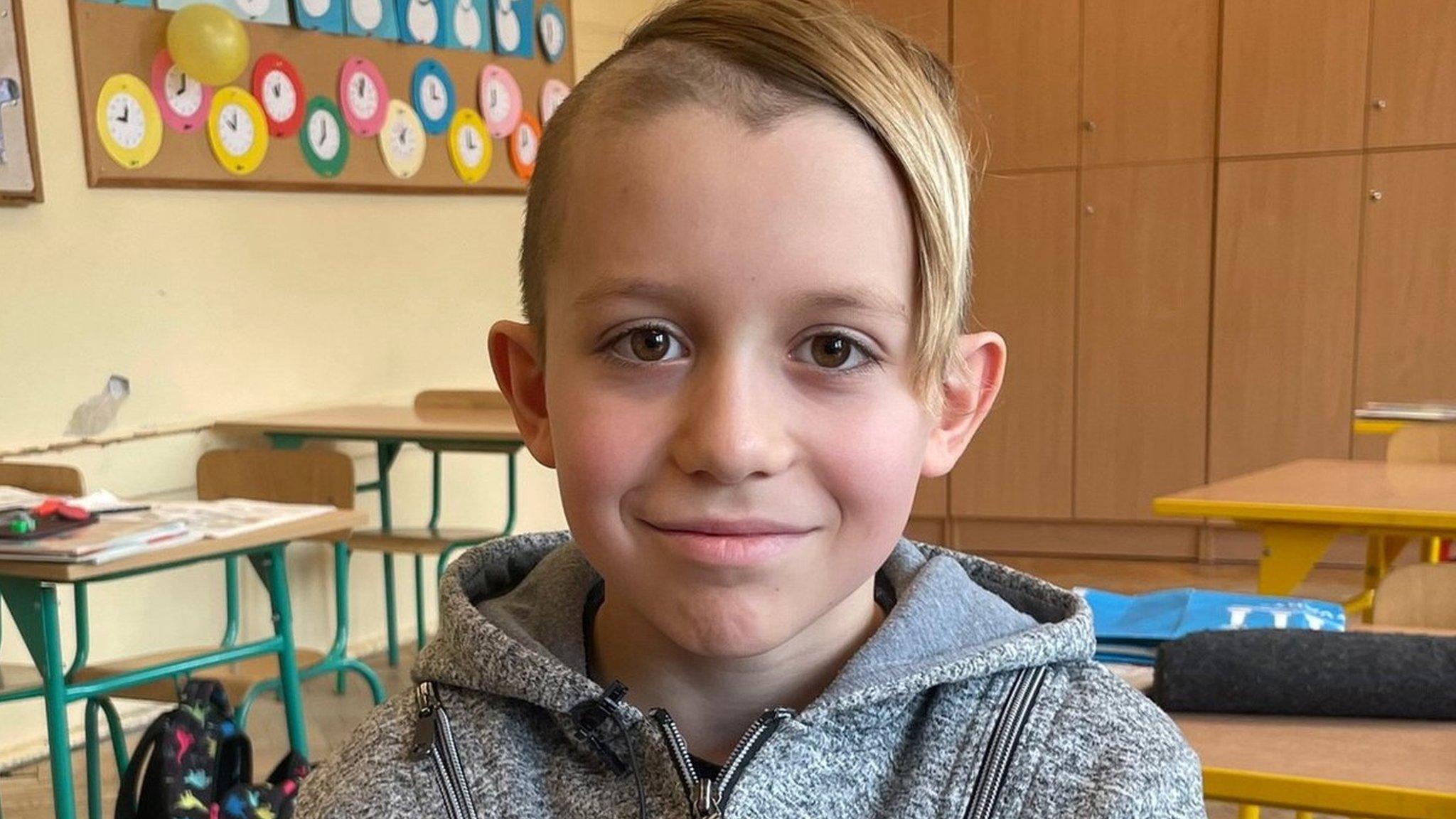
- Published1 March 2022
